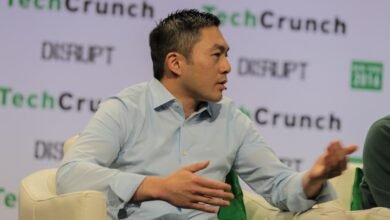Sam Altman Defends GPT-5 Against Critics

▼ Summary
– OpenAI’s GPT-5 launch faced criticism for technical glitches, unfriendly interactions, and failing to meet high expectations like achieving AGI or PhD-level cognition.
– Skeptics viewed GPT-5’s underwhelming performance as evidence that the AI boom is ending and that scaling data and chips may not lead to AGI, comparing it to “New Coke.”
– Sam Altman defended GPT-5, asserting it is transformative for accelerating scientific discovery and that initial negative perceptions have improved over time.
– OpenAI attributes the tepid initial reception to users not immediately appreciating GPT-5’s specialized optimizations for tasks like coding and science, which benefit experts more than everyday users.
– The company clarified that GPT-5’s advances came from reinforcement learning and training on its own data, not just scaling up datasets and computation as in previous models.
OpenAI’s GPT-5 launch faced significant criticism for technical glitches and unmet expectations, but CEO Sam Altman remains steadfast in defending the model’s capabilities and long-term potential. The August debut was marred by a problematic livestream where the AI produced charts with clearly incorrect figures. Users on a Reddit forum voiced dissatisfaction, describing the new version as less user-friendly and requesting a return to the earlier model. Many critics argued that GPT-5 failed to live up to the transformative advancements OpenAI had heavily promoted for years, suggesting it represented only an incremental improvement rather than a revolutionary leap.
This underwhelming reception led some skeptics to declare the conclusion of the artificial intelligence boom, with predictions of an impending “AI Winter” gaining traction. Noted AI critic Gary Marcus commented that the model was the most anticipated AI system ever but did not deliver on its promises of artificial general intelligence (AGI) or PhD-level cognitive abilities. He and others contended that the launch demonstrated the limits of OpenAI’s core strategy, achieving intelligence primarily by scaling up data and computational power. For a time, a considerable segment of the AI community shared this perspective, comparing GPT-5’s debut to the infamous failure of New Coke.
Sam Altman, however, completely rejects this narrative. A month following the launch, he confidently addressed the situation, asserting that GPT-5 fully meets the ambitious standards he had set and that progress toward AGI remains firmly on course. He acknowledged that initial public sentiment was negative but claimed it has since improved dramatically. While recent attention has shifted to OpenAI’s impressive new video generation tool, Altman’s central message is that critics are mistaken about GPT-5’s significance and will ultimately be proven wrong.
Altman and his team present GPT-5 as a foundational technology poised to revolutionize fields like scientific research and software development. They argue it establishes AI as an essential tutor, a powerful alternative to search engines, and a sophisticated partner for experts. Altman reports that users are now experiencing breakthrough moments, with physicists and biologists expressing astonishment at how the model assists in solving complex problems. He emphasizes that this marks the first time an AI has begun genuinely accelerating the pace of scientific discovery, a milestone not reached by any predecessor.
So what explains the lukewarm initial response? OpenAI points to a few key factors. One reason is that the company had already released several highly capable versions of GPT-4, which themselves felt transformative due to advanced reasoning features. Altman states the performance leap from GPT-4 to GPT-5 was actually greater than from GPT-3 to GPT-4, but the incremental updates made the final jump seem less dramatic. President Greg Brockman echoed this, noting that by consistently unveiling improvements, they had already revealed much of their progress.
Additionally, the company notes that GPT-5 is fine-tuned for specialized tasks such as scientific inquiry and coding, meaning its most impressive abilities aren’t immediately obvious to the average user. Most people aren’t physics researchers, so they wouldn’t necessarily appreciate that GPT-5 now ranks among the top five performers on Math Olympiad problems, a massive improvement from its previous standing in the top 200.
Regarding the argument that GPT-5 proves “scaling” has reached its limits, OpenAI clarifies this stems from a misconception. Unlike earlier models, GPT-5’s primary advances didn’t come from exponentially larger datasets or more computing power. Instead, its gains were achieved through reinforcement learning, a method where human experts provide feedback to train the model. Brockman explains that their models have reached a level of intelligence where they can generate their own high-quality data to fuel this learning cycle. When a model is less advanced, the focus is on making it bigger, but once it achieves a certain sophistication, the strategy shifts to leveraging its own generated content for further training.
(Source: Wired)





